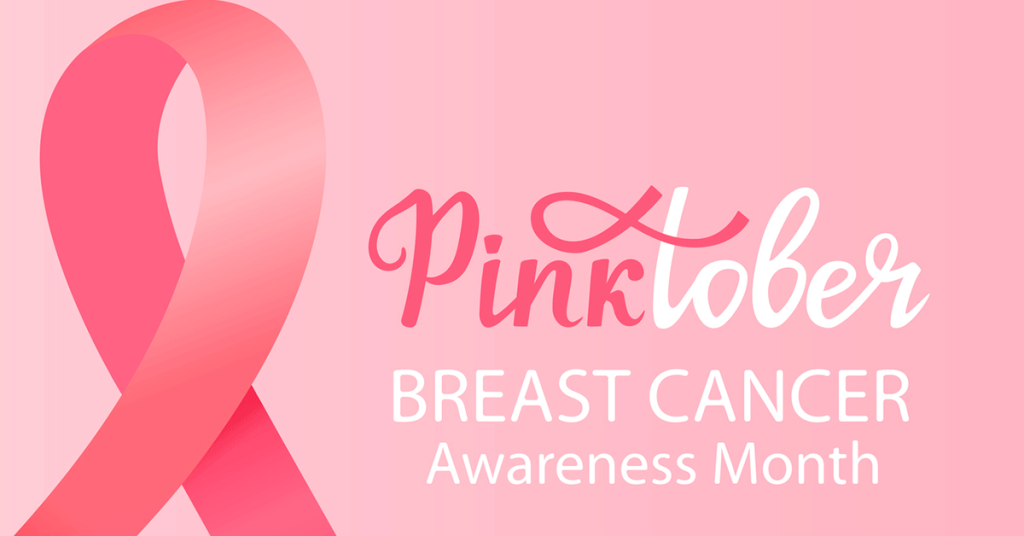Early Detection Saves Lives. Awareness is Power.
Across the world, October is observed as Breast Cancer Awareness Month with a surge of pink taking the forefront in the most spectacular fashion from Pink Wednesdays and/or Fridays to pink-decorated workspaces and Pinktober hashtags aplenty!
However, in all its glory, Pinktober is so much more than a beautiful show of solidarity through a colour that has defined feminism for ages. It is about raising awareness about breast cancer, promoting early detection, and supporting those affected by the disease.
This year, the focus is on the importance of early detection, which significantly increases survival rates. When breast cancer is caught in its earliest stages, the 5-year relative survival rate can be as high as 99%. In this vein, here are a few important things to know in order to aid early detection.
Know Your Risk
There are non-modifiable (those we cannot change) and modifiable (those we can change) risk factors for breast cancer. Modifiable risk factors include: being overweight, lack of exercise, eating lots of processed fatty foods, smoking, excess alcohol, and exogenous hormone use (in the form of the oral contraceptive pill or hormone replacement therapy).
In addition, knowing your family history (a non-modifiable risk) can be lifesaving. Talk to a doctor about your family history and see how that history impacts your risk of breast cancer.
You and your doctor can then create a personalized plan to monitor for signs of the disease and aim to help you reform any modifiable risk factors you may have.
Know Your Normal
With self-care being a hot topic for us as women in recent times, we must also consider self breast examination as a part of just that – self care.
Monthly self-examinations should be a part of our calendar just as date night, facials, hair appointments, and nail appointments can be. Being familiar with how your breasts look and feel can help you notice abnormalities such as lumps, pain, or changes in size that may be of concern.
These exams are best done 10 days following your period as hormonal changes around the time of your cycle can cause the breasts to feel lumpy which can cause unnecessary anxiety.
Use the Look, Learn, Love approach to identify any abnormalities or concerns. It’s important to know what’s normal for you so you can talk with your healthcare provider if something doesn’t look or feel right.
Look: Stand in front of a mirror with your shoulders straight and your arms on your hips. Look at your breasts for any changes in size, shape, or colour such as dimpling, redness, bulging/swelling, or a rash.
Love: Raise your arms and look for the same changes listed above. While you’re at it, examine the nipples for any swelling, discharge or change in position (turning inward of the nipple).
Learn: Feel your breasts while lying down, using your right hand to feel your left breast and then your left hand to feel your right breast. Use a firm, smooth touch with the first few fingers of your hand, keeping the fingers flat and together. Cover the entire breast from top to bottom, side to side. Finally, feel your breasts while you are standing or sitting which is easiest to do while you are soaped up in a warm shower.
For a visual of how to perform a self-exam please watch:
Get Screened
For those at average risk, have a mammogram every year starting at age 40. Mammograms can start earlier and be used in conjunction with Ultrasound (for those with denser breast tissue) depending on your risk factors – both modifiable (ones we can change) and non-modifiable (those we cannot change) including family history. Talk to your doctor today to determine your risk.
If you have any signs of breast cancer, finding it early and treating it early may save your life. 3D mammography now also provides a quicker, less uncomfortable and more efficient way to examine breast tissue. So ladies there is no excuse! Talk to your health provider today about scheduling.
With that being said, as October #Pinktober #Breast Cancer Awareness Month quickly approaches, remember: Self Examination is Self Care, Early Detection Saves Lives and Awareness is Power. We are in this fight together!
For further information on anything in the article above, 3D mammography or to schedule an appointment, please feel free to contact Family Medicine Center, Blake Road at 702-9310 or Family Medicine Center, Rock Sound at 334-2500.
Dr. Zenna Friend, BMBS, MRCGP
Lead Physician, Family Medicine Center, Rock Sound, Eleuthera

